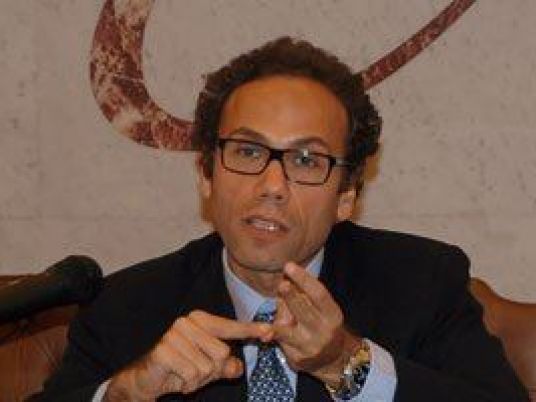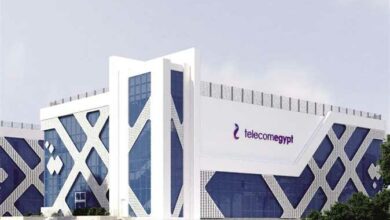
Mohamed al-Nawawy, managing director and executive chief of Telecom Egypt, said the company applied in August 2009 for a mobile carrier license, but the then political regime postponed the issue for political reasons, which resulted later in continuous postponing.
“I will not recognize obtaining the license until I get it in my hand. Based on this, I will take measures. But where is the license? I had not received it yet,” Nawawy said. “Once the unified license was declared, I submitted feasibility study to the company board. I was authorized to pay LE2.5 billion for the license. I sent six letters to the National Telecommunications Regulatory Authority saying that the company is ready to pay for the license, but nothing happened. No one responded to our letters.”
Regarding importance of the fourth license, Nawawy said it targets “increasing wealth of the Egyptian people as 80 percent of the company shares are owned by the people, while the 20 percent are owned by Egyptian and foreign shareholders. It’s my duty to increase this wealth, which will never happen, if I own only eight percent of the market, while the remaining 92 percent are owned by the privately-owned mobile carriers. Secondly, It’s a bigger profit for the company workers estimated at 50,000 employees.”
Telecom Egypt was the biggest service provider in the Middle East in 1998, according to Nawawy, however, it reached today the 30th rank due to being ruled out of competition.
“The gross domestic product of telecommunications sector reaches LE30 billion, while the national income of it reaches around LE10 billion, as the foreign partnership in the private sector companies reaches 72 percent, which is the rate that could be calculated through the average of the foreign partner’s shares,” Nawawy said, arguing that by simply adding together the three companies' foreign share percentages, with Vodafone at 55 percent, Mobinil at 95 percent and Etisalat at 65 percent, and dividing by three, you could calculate the percentage of foreign-owned shares in the Egyptian mobile market. “This is unique and unprecedented in the world.”
Asked over the market saturation and profit that the fourth license could yield, Nawawy said, “I heard this before when the Emirati Etisalat entered the market with the third license. These sayings are usual by competitors. I believe this is untrue.”
According to Nawawy, the Egyptian market has a different demography. “One third of the people is under 15 years old, second third is between 15-25 years old, while the last third is above 25 years old. The rate of increase in households reaches around half million families annually, which means that we will have five million new houses over ten years, which is the client that I will target. In addition, there is the basic client of Telecom Egypt, which installed the landlines for seven million houses. Once I get the license, I will head to these houses, which have an average of five individuals making a total of 35 million persons and that will create the competition. I will start off with our clients through convincing them with our mobile services based on the previous credibility.”
Concerning the voice services, Nawawy said they are not his main target. “Of course I will try to get the biggest number of users, but the real future is for internet services and the broadband,” adding that growth in the data transfer reaches 40 percent. He also added that Telecom Egypt will be keen on making the voice calls for free like it is abroad.
Nawawy also indicated that the company is working on the fourth generation wireless technology and that the government declared in April that the 4G’s frequencies will be available in a one year from now.
Asked about joining the new unified telecommunications entity that will be established soon, Nawawy said, “The decision to join or not is based on goals of the entity. If I found it will grant the mobile operators with the services I render, so what will be the benefit behind joining? What would be the benefit behind joining an entity that wants me to pay for establishing networks at places I already have network at so the other entity members, who are my competitors, would benefit from?”
Nawawy said that a company representative attend the preparatory meetings of the new entity to acknowledge the situation so if they took decision, it would be made on a true basis. However, attending the meeting should not indicate preliminary approval. “The decision is for the general assembly and then the board. I’m the managing director in the board. I will stick to what would be agreed on.”
Asked if the new entity would secure the Egyptian national security, Nawawy wondered if the national security cannot be protected without the entity. “Aren’t the security licenses that any company get a guarantee for the national security. Before the entity, Telecom Egypt couldn’t establish any cables or extend infrastructure without necessary licenses from all sovereign authorities.”
In related news, Telecom Egypt will launch two international bids to import from one to six million SIM cards for mobile phones and from 11-45 million recharge cards for the fourth mobile carrier whose licence was approved by cabinet in September.
A source from the company said arrangement are being made for the bid to import the recharge and SIM cards.
Edited translation from Al-Masry Al-Youm


